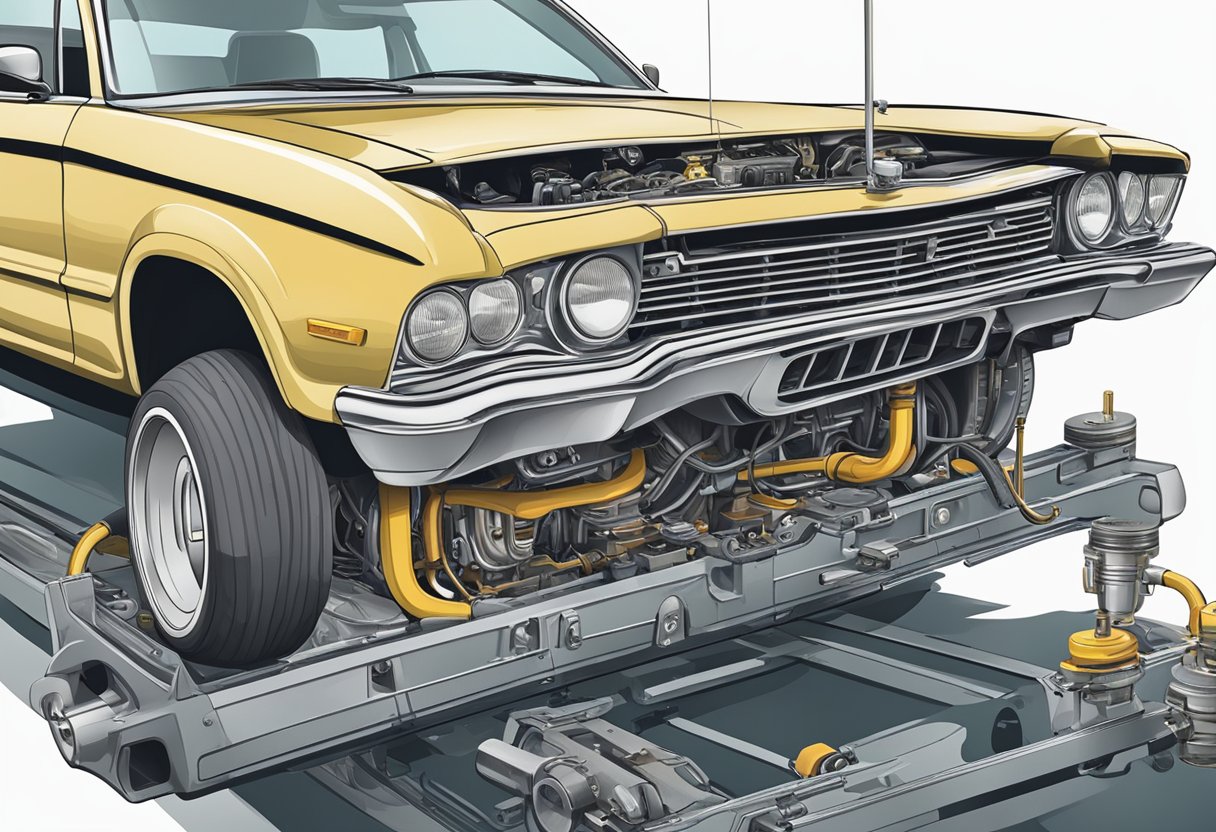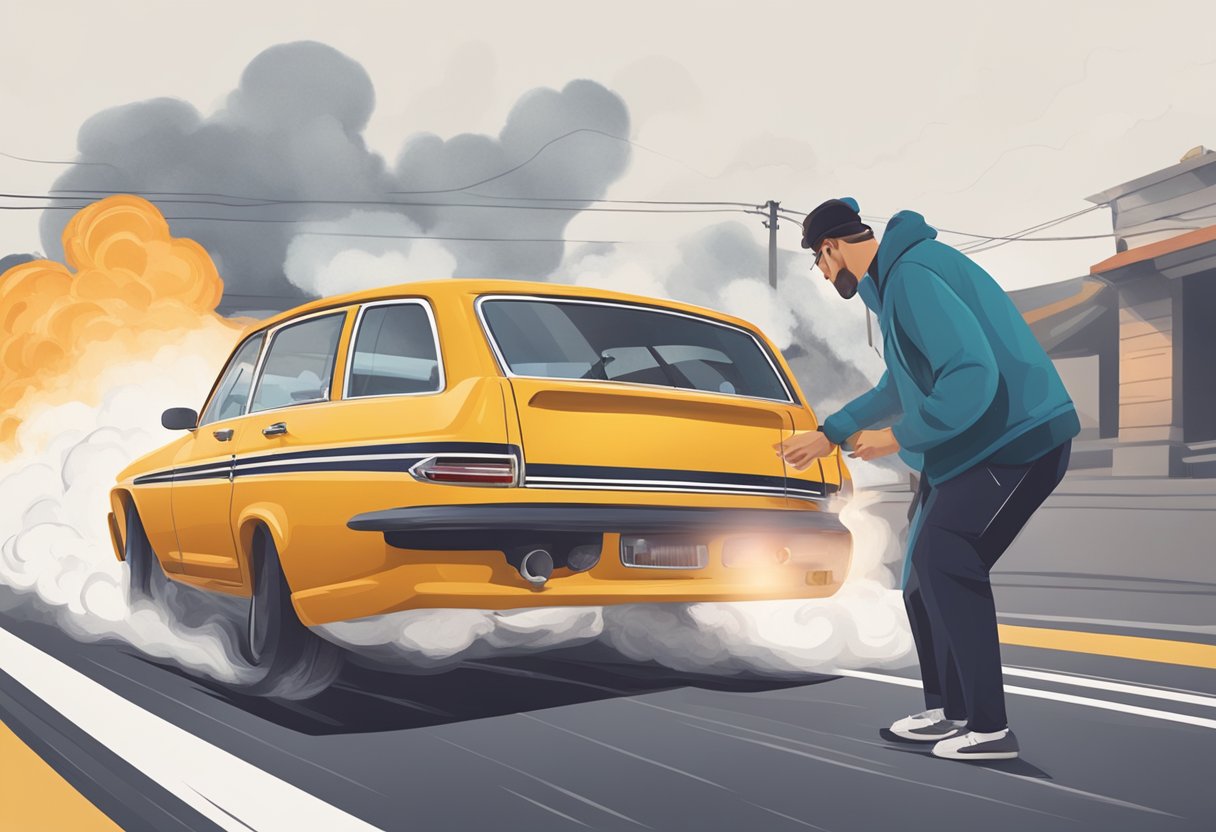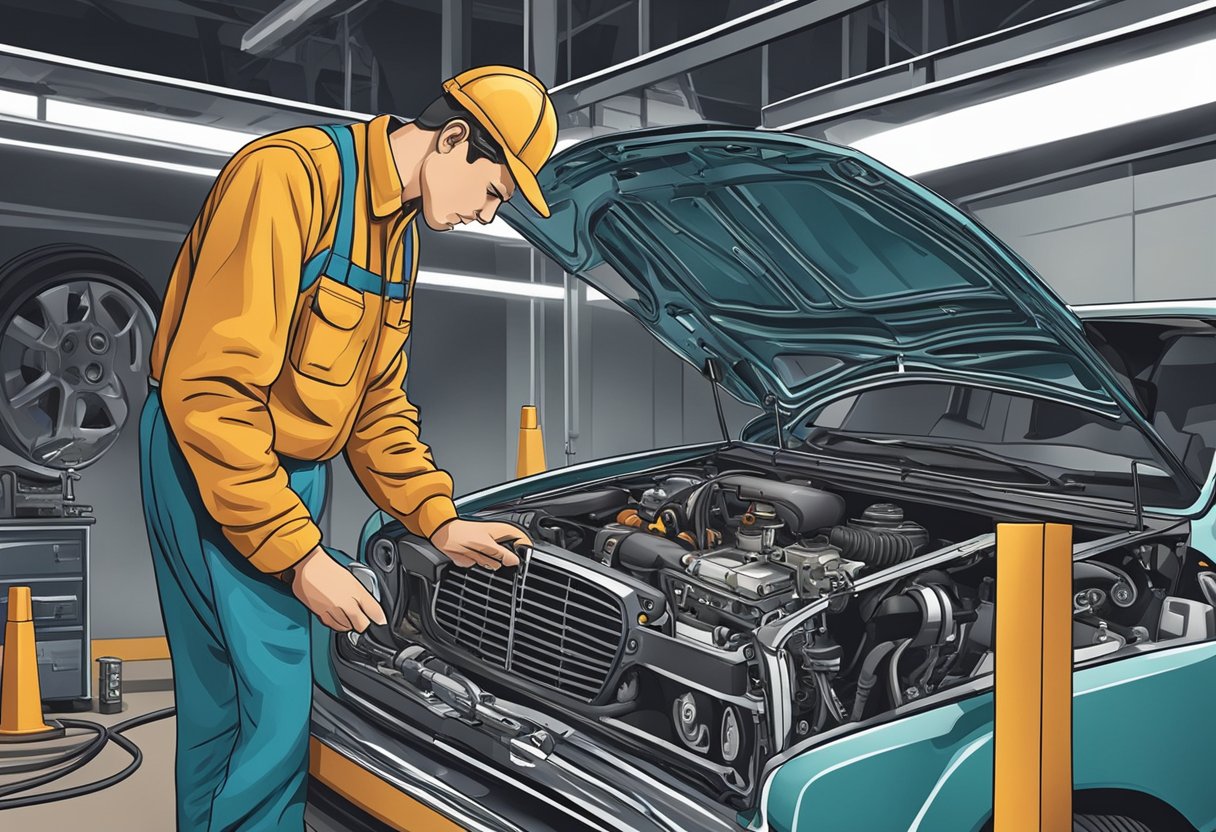When a vehicle’s transmission starts slipping, it’s often a signal of underlying issues that require attention. Experiencing a delay in acceleration or a sense of the engine revving high without the corresponding movement can indicate a problem with the transmission.
These symptoms may stem from various factors, such as worn clutches, low fluid levels, or even more complex internal transmission issues.
The cost to fix a slipping transmission can vary greatly, but on average, it can range from $1,400 to $5,800. The price can be influenced by the type of repair needed, the make and model of the vehicle, and the rates of the service provider

Addressing transmission slipping promptly can save vehicle owners from more costly repairs down the road. The cost to repair a slipping transmission varies widely based on the severity and root cause of the issue. For example, something as simple as a fluid change can be relatively inexpensive, while complete transmission overhauls or replacements can run into the thousands.
For those weighing the options between a do-it-yourself approach and professional mechanic services, understanding the potential costs involved is crucial.
A DIY fix might seem cost-effective, but without the right expertise, it could lead to more significant expenses. On the other hand, professional mechanics offer expertise and often a warranty, which can provide peace of mind despite potentially higher upfront costs.
Repairing a slipping transmission is an investment in a vehicle’s longevity and performance, and keeping informed about the cost factors can help in making the best decision for one’s situation.
Is a Slipping Transmission Related to a Faulty Torque Converter?
If you’re experiencing a slipping transmission, it could be a problem with the torque converter. A faulty torque converter can lead to issues with gear shifting and overall transmission performance. When considering the cost of torque converter replacement, it’s important to factor in labor costs as well.
Understanding Transmission Slipping

When a transmission slips, it can be a sign of a serious problem with your vehicle, potentially leading to substantial repair costs. Understanding the symptoms and causes is critical for vehicle owners.
Common Symptoms of Slipping Transmission
- Hesitation: The vehicle hesitates or refuses to go into gear when the driver pushes the accelerator.
- Unusual Noises: Whining, clunking, or humming sounds emanate from the transmission.
- Surging: The vehicle suddenly surges forward or backward without driver input.
- Delayed Movement: Experiencing a noticeable delay before the vehicle starts to move despite revving the engine.
- Higher Revs: The tachometer shows higher RPMs for the speed or gear the vehicle is in.
Potential Causes of Transmission Issues
- Low Fluid Levels: Insufficient transmission fluid can lead to overheating and gear slippage.
- Worn Clutch: In manual transmissions, a worn clutch can cause slipping. Automatic transmissions have clutch packs that can also wear out.
- Gear Wear: Over time, gears can become worn, resulting in loss of grip and slippage.
- Solenoid Problems: The solenoid controls fluid flow through the transmission and can impact gear engagement if faulty.
- Torque Converter Issues: For automatic transmissions, a malfunctioning torque converter can be a culprit for slipping gears.
By recognizing the symptoms of a slipping transmission and understanding the potential causes, drivers can take swift action to prevent more extensive damage to their vehicles. Addressing transmission slipping early on can save time and money in the long run.
Addressing and Repairing A Slipping Transmission
Addressing a slipping transmission promptly can mean the difference between a simple repair and a full-blown replacement. Costs can vary widely based on the severity of the issue and the course of action taken.

When to Opt for Transmission Repair vs. Replacement
Transmission repair is generally more cost-effective than replacement and is suitable when the slipping is due to minor issues such as low fluid levels or worn bands. Repair shops often recommend a transmission flush or a fix for slipping components as the first line of defense. On the flip side, if the transmission is old or severely damaged, opting for a rebuilt or remanufactured transmission may be more economical in the long run. Replacement is the go-to solution if the vehicle’s transmission is beyond repair or a repair would only be a temporary fix due to extensive damage.
Cost Factors for Transmission Service
The cost to fix transmission slipping can be influenced by multiple factors.
- Type of Vehicle and Transmission: High-end cars typically cost more to fix.
- Extent of Damage: Minor fixes like a fluid change require less work than a full rebuild or replacement.
- Service Center: Prices may vary between dealerships, independent shops, and transmission experts.
- Type of Service: A fluid change or a transmission flush is less expensive than labor-intensive services like transmission rebuilds.
Transmission repair costs can start from a few hundred dollars for minor fixes and climb to several thousand for a transmission replacement or rebuild.
Customers should expect to spend anywhere between $300 to $1,400 for standard repairs such as replacing a solenoid or doing a flush, whereas more comprehensive solutions like a rebuilt transmission may set you back a couple of thousand dollars.
It’s critical to get a diagnosis from a qualified transmission expert to determine the best course of action and obtain an accurate estimate.
As an Amazon Associate we earn from qualifying purchases.











I’ve noticed my car having difficulty accelerating and sometimes it feels like it’s not shifting gears correctly. Could this be a sign of a slipping transmission, and if so, what should my first step be to address it?